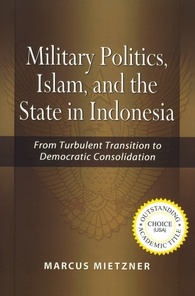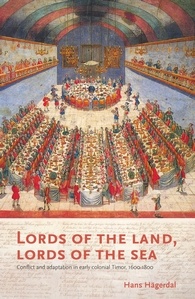Military Politics Islam and the State in Indonesia: From Turbulent Transition to Democratic Consolidation
Description
About the Book Based on a decade of research in Indonesia, this book provides an in-depth account of the military’s struggle to adapt to the new democratic system after the downfall of Suharto’s authoritarian regime in 1998. Unlike other studies of the Indonesian armed forces, which focus exclusively on internal military developments, Mietzner’s study emphasizes the importance of conflicts among civilians in determining the extent of military involvement in political affairs. Analysing disputes between Indonesia’s main Muslim groups, Mietzner argues that their intense rivalry between 1998 and 2004 allowed the military to extend its engagement in politics and protect its institutional interests. The stabilization of the civilian polity after 2004, in contrast, has led to an increasing marginalization of the armed forces from the power centre. Drawing broader conclusions from these events for Indonesia’s ongoing process of democratic consolidation, the book shows that the future role of the armed forces in politics will largely depend on the ability of civilian leaders to maintain functioning democratic institutions and procedures. Review A fine recent book on Indonesia by Marcus Mietzner of the Australian National University highlights five features of the Indonesian armed forces. First is the army’s (debatable) view of itself as the main bringer of independence. Second is its disdain for periods of civilian rule in the 1950s, dismissed as chaotic, corrupt and, through the spread of regional rebellions, dangerous to the country’s integrity. Out of this disdain grew a third feature, a doctrine known in Indonesia as dwifungsi, or dual function, of running the country as well as defending it, and a fourth, the entrenchment of the armed forces in the infrastructure of the state. The fifth point, what Mr Mietzner terms the ‘increasingly sultanistic character’ of the ageing Suharto’s rule opened up a rift with his fellow generals. When the economy collapsed in 1998 and the threat of anarchy loomed, Suharto looked over his shoulder and found nobody following him. In the end, dictators, however unpopular, despotic and incompetent, rarely fall because they have too many enemies. They fall because they have too few friends left” (The Economist).
Additional Information
| Edition | |
|---|---|
| Pages | |
| authors | 680 |







